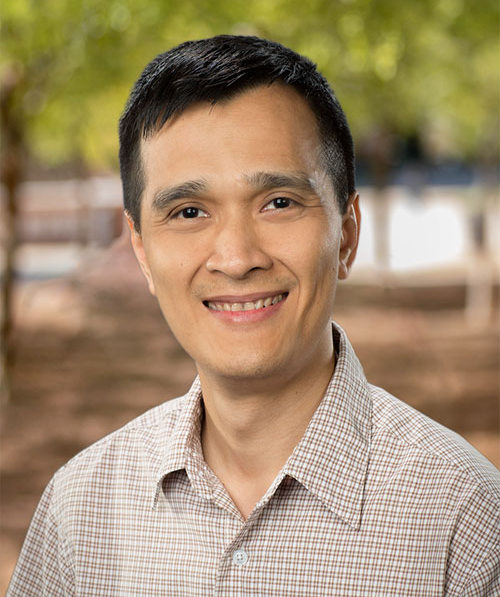Computer science and software engineering researcher part of $1.8 million NIH study to pioneer platform for the analysis of single-cell data
Tin Nguyen is pioneering a new platform for the analysis of single-cell data through the creation of an easy-to-use web interface through software programs designed in his laboratory.
Nguyen, an associate professor in computer science and software engineering and director of Auburn University’s Bioinformatics Lab, is a co-investigator on a $1.8 million National Institute of Health award granted to the bioinformatics company AdvaitaBio. This research will 1) accurately identify cell types and composition in complex tissues, 2) infer cell developmental stages and pseudo-time trajectories, and 3) identify cell-type-specific pathways and punitive mechanisms in phenotype comparisons. Auburn University’s portion of the grant is $813,000.
The study, “A web-based platform for robust single-cell analysis, bulk data deconvolution and system-level analysis,” co-authored by Nguyen in collaboration with AdvaitaBio’s researchers, will provide new methodologies for single-cell analysis that far exceed current technologies.
“A special feature of this software is that it will be able to analyze very large datasets,” Nguyen said. “Imagine that the data has a million cells, which can be very difficult for any software to analyze. But this software will be able to analyze extremely-large-scale data. Second, it can also infer cellular development for multiple sets of cells and cell types. Being able to follow the developmental evolution of each cell will allow for important advances in areas such as cancer research.
AdvaitaBio is the leader in the interpretation of high-throughput biomedical data including variant interpretation, pathway analysis, disease subtype discovery and integration across multiple data types. Currently, nine of the top 10 pharma companies rely on Advaita’s state-of-the-art algorithms to solve complex problems. Advaita provides a suite of advanced analysis software to more than 13,000 registered users worldwide: iPathwayGuide, for functional interpretation of genes and proteins; iVariantGuide, for genetic variant analysis; iKnowledgeBase, a collection of knowledge and pre-analyzed data from various phenotypes, and iBioGuide, a search engine revealing connections between genes, pathways, SNPs, drugs, and more.
“Our preliminary work shows that single-cell analysis and cellular deconvolution can achieve an outstanding accuracy of approximately 90 to 100 percent if we properly utilize reference single-cell datasets and pathway knowledge” said AdvaitaBio CEO Dr. Sorin Draghici.
Nguyen added that data from single cells can be used to analyze any disease, the source of the diseases, down to the muscles and blood vessels.
“This project is very interesting to me because I’m happy that some of the academic work we do here can be translated into the health industry, where it can be useful and help save lives,” Nguyen said.
Media Contact: Joe McAdory, jem0040@auburn.edu, 334.844.3447

Tin Nguyen
Categories: Health Sciences, Engineering
Back to Articles




